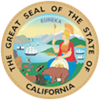
News Release
California Department of Food and Agriculture
Media Contacts: Steve Lyle, CDFA Public Affairs, (916) 654-0462, Alexia Retallack, California Department of Fish and Game, (916) 322-8944
CDFA BORDER STATIONS TO CONTINUE FIGHT AGAINST
Nearly 200 infested watercraft intercepted since early 2007
SACRAMENTO, AUGUST 26, 2008 - During the upcoming Labor Day weekend, the California Department of Food and Agriculture estimates that more than 4,000 watercraft will enter the state. Some of the watercraft may be carrying unwanted hitchhikers – Quagga mussels and Zebra mussels. Both invasive mussels are dangerous pests that can alter habitat and water chemistry, making waterways uninhabitable to native species.
Since early 2007, CDFA’s Border Protection Stations have inspected more than 150,000 watercraft and found the pests nearly 200 times. Another 14,000 watercraft were cleaned and/or drained of all water that could harbor the mussels. The inspections are ongoing and will definitely be a feature of the holiday weekend for boaters entering California.
“These mussels are another example of the large number of invasive species threatening California each and every day,” said CDFA Secretary A.G. Kawamura. “Our border stations do important work to protect the people of our state by protecting the environment and the food supply.”
After Quagga mussels were detected in 2007 in the Colorado River, funding was granted to enable CDFA to inspect watercraft at six border stations along the Nevada and Arizona borders: Truckee, Needles, Winterhaven, Blythe, Yermo and Vidal.
When exotic mussels are detected by CDFA inspectors, the watercraft are cleaned and the owners issued a quarantine notice prohibiting the craft from entering California waters until a final inspection is conducted by the California Department of Fish and Game.
Quagga and Zebra mussels attach themselves to boat hulls or may be free-swimming larvae in trapped water in boat bilges, live wells, and other places capable of harboring water while boats are in transit. To help prevent the spread of these mussels, boaters should inspect all exposed surfaces, wash boat hulls thoroughly, remove all plants from boat and trailer, drain all water, including lower outboard units, clean and dry livewells and bait buckets and dispose baitfish in the trash. Watercraft should be dried for at least five days between launches in different fresh bodies of water. These steps are designed to thwart spread of the invasive mussels, safeguard boats and preserve high quality fisheries.

1220 N St., Ste. 214, Sacramento, CA 95814
916-654-0462, www.cdfa.ca.gov
